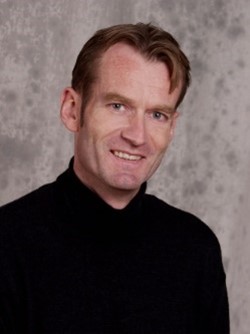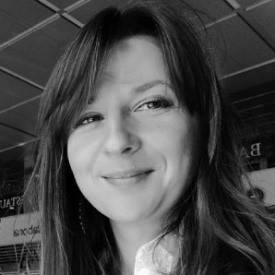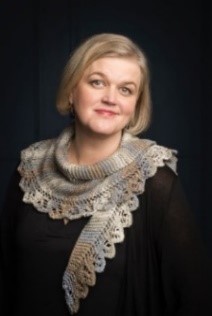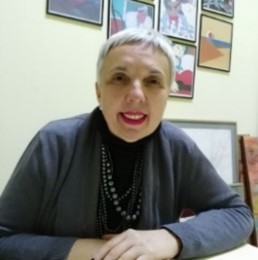Instructors of Masterclasses

Reiner Haus (Deutschland)
Dr. rer. medic. (Univ. Witten-Herdecke/Germany), Dr. h.c. (Univ. Liepaja/Latvia)
Music therapist (M.A.), Rehabilitation Scientist (B.A.)
Lecturer for music therapy at Protestant Univ. of applied Science Bochum/Germany
Advisor of the German Ministry of Foreign Affairs for development rehabilitation and music therapy for refugees in Jordan (2015-2020), director Music Therapy Unit University Witten-Herdecke Children Hospital Datteln / Germany (1993-2015), Founder and chair of the Music Therapy Master Program Univ. Liepaja / Latvia (1999-2006).
“Psychotherapeutic aspects in music therapy for patients with chronical pain”
- Prevalence and complexity of chronic pain
- Psychodynamic concept of psychosomatic diseases and disorders
- The model of conversion of intrapersonal disbalance
- Biochemical transfer of psychodynamic processes
- Music therapy methods for patients with chronical pain
- Research

Inga Oliņa (Latvia)
Development leader of the "Parents' education program" of the Foundation "Plecs", parents' coach. 15 years experience in the area of communication, creating and managing such projects as the National Song and Dance Festival, “National folk costume for everyone”, “Festival of the white tablecloth”, “Meet your craftsman”. Leader of communication and branding of the 100th Anniversary of the Latvian Republic, creating cooperation and communication projects in Latvia and abroad. Five years experience teaching communication science and innovation management course to Latvian and foreign students at the University of Applied Sciences. Mother of two wonderful children.
Education:
- BA in sociology and management, Riga Stradiņš University
- MA in culture and media management, Latvian Academy of Culture, Riga/Hamburg (Latvia/Germany)
- Certificate of “Parents’ education program” from foundation “Plecs” and “Karyn Purvis Institute of Child Development”, VIP coach qualification.
- 10 weeks online course of TBRI method, “Karyn Purvis Institute of Child Development”, USA
“Trust Based Relational Intervention method or Midsomer without Murders”
- Establishing and strengthening of attachment; correction of behavior:
- Parenting strategies, that push away
- Parenting that fosters attachment
- Strengthening of the body and environment
- Understanding of the sensor processes, sensor needs
- Parenting proficiency in pedagogical work
 Kirsi Tuomi (Finland)
Kirsi Tuomi (Finland)
Music therapist, a Theraplay therapist, an attachment focused family therapist and a licensed supervisor. She has worked as a therapist with children, adolescents and their families over 20 years. Her special area of interest is in foster and adoptive families as well as attachment issues. Kirsi has published in Finnish and English and is currently a PhD candidate in the University of Jyväskylä.
“Enhancing and strengthening the parent-child bond through music, play and mentalization-based approaches”
The main focus is on attachment-based activities including engaging, structuring, challenging and nurturing activities by playing and singing. Music therapy and play offer powerful ways for the child and parent to connect with each other. The innate musicality may be found during the sessions and a multisensory experience including gaze, touch, feeding and singing captures the emotional level in a strong manner. The workshop offers participants new perspectives and hands-on tools to use music therapy with families.
 Ranka Radulovic (Serbia)
Ranka Radulovic (Serbia)
MD, PhD, psychiatrist, music therapist, supervisor AMTS She has 30 years of work experience at Clinic for Psychiatry in Belgrade. She is the founder of Association of Music Therapists of Serbia and director of Hatorum - Music Therapy Centre. At the Clinic for Psychiatry in Belgrade, she was established a new music therapy methods: analytical listening of music – guided fantasies method, art music therapy method, method of musical choice and integrative music therapy. She promotes bereavement music therapy as a new concept of wellness. R. Radulovic is a member of EMTS Commission and Serbian CR in GA EMTC.
“Online application of group musical choice method during pandemic Covid-19”
The method is based on the qualitative analysis of the song lyric in MCM (musical choice method) which defines the MCM forms: form of resistance, neutral songs, songs focused on different stages of grief, separation anxiety, phenomenon of psychopathology or dependency. The aim of this masterclass is to show how we can easily follow the process of adaptation to loss during pandemic Covid -19 by using the musical choice method, as a possibility of early detection of complicated grief reactions / stagnation in the grieving process which carries the risk of later psychiatric and psychosomatic disorders. This method can also detect anticipatory anxiety, clearly distinguishing persons with mature and maladaptive defenses and persons with the capacity for deeper decompensation.



